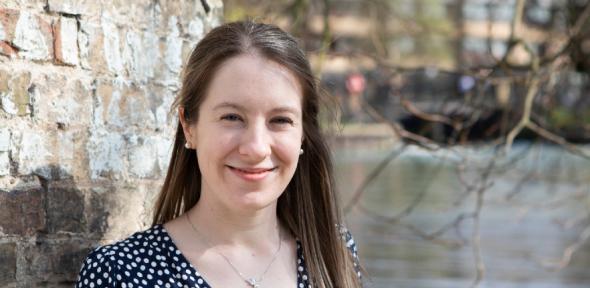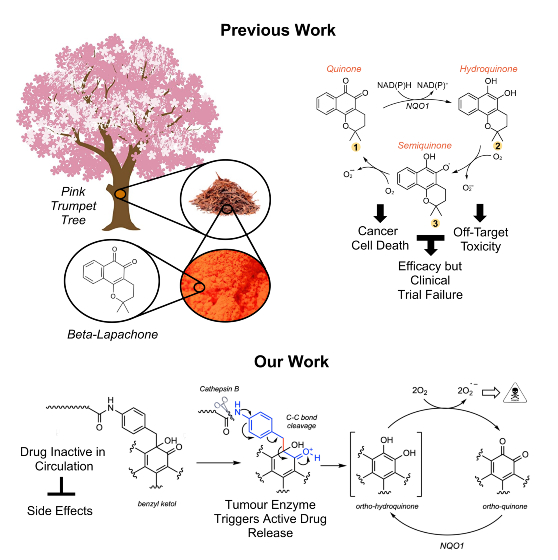
Submitted by Yolibeth López ... on Wed, 06/07/2022 - 15:45
A new methodology, developed by our Cambridge Biosciences DTP alumna, Dr Lavinia Dunsmore, during her PhD, has created a way to avoid the toxicity of some plant-derived cancer-killing drugs by 'masking' their toxicity until they reach their targets, potentially leading to more effective cancer therapies.
Using the new method, the researchers were able to specifically target and kill leukemia cells in mice without causing the severe side effects previously seen in clinical trials.
Dr Lavinia Dunsmore is the first author in the article published in Nature Chemistry, and developed the methodology when completing her PhD in the Bernardes group, Department of Chemistry. The scope of the project was further developed by equal contributors postgraduate student Julie Becher and postdoctoral researcher Dr Enrique Gil de Montes in Cambridge; Dr Claudio Navo, who provided the modelling and theoretical calculations from the Basque Research and Technology Alliance in Spain; and postgraduate student Ana Guerreiro, who performed the in vivo experiments in Portugal.
“With this new ortho-quinone protection technique, a quinone can be linked in a protected form to many different types of targeting groups such as proteins, antibodies, nanoparticles, etcetera, and the linker can be tuned for activation by various enzymes over-expressed in cancer cells," said Dunsmore. "This makes it a general strategy that can be used for many different applications in the future.”
Read more: Department of Chemistry
Publication details:
Dunsmore, L., Navo, C.D., Becher, J. et al. Controlled masking and targeted release of redox-cycling ortho-quinones via a C–C bond-cleaving 1,6-elimination. Nat. Chem. 14, 754–765 (2022). https://doi.org/10.1038/s41557-022-00964-7


